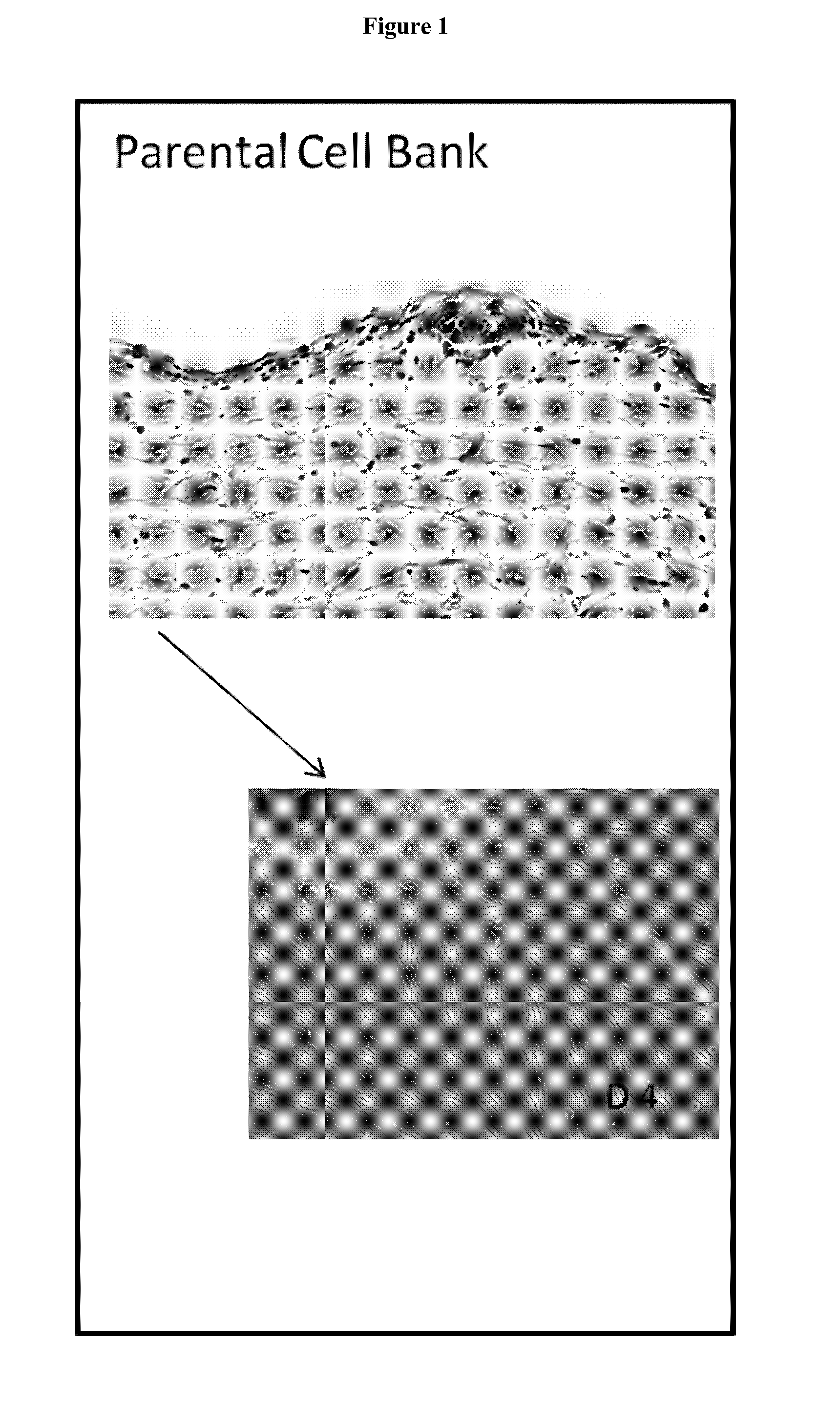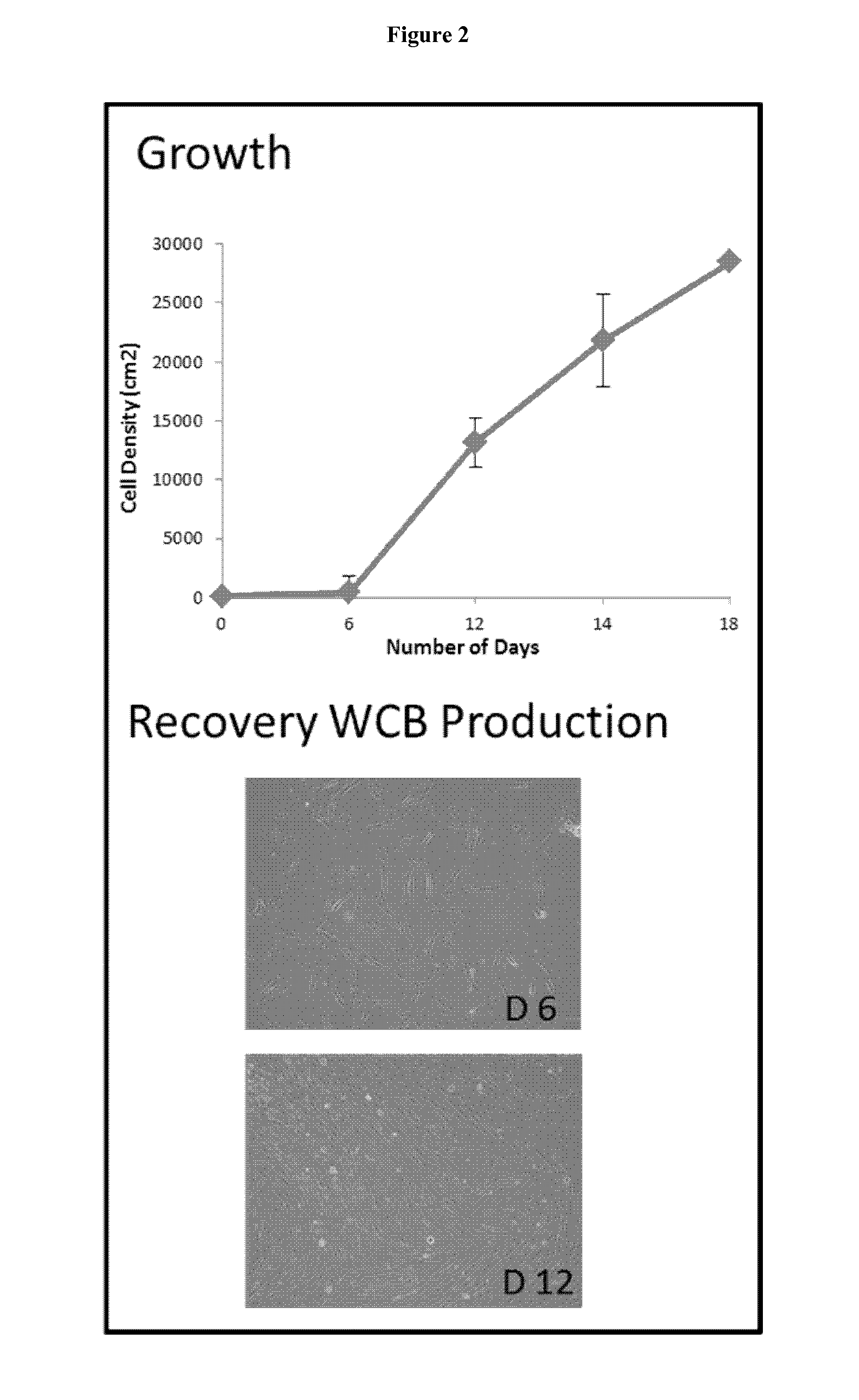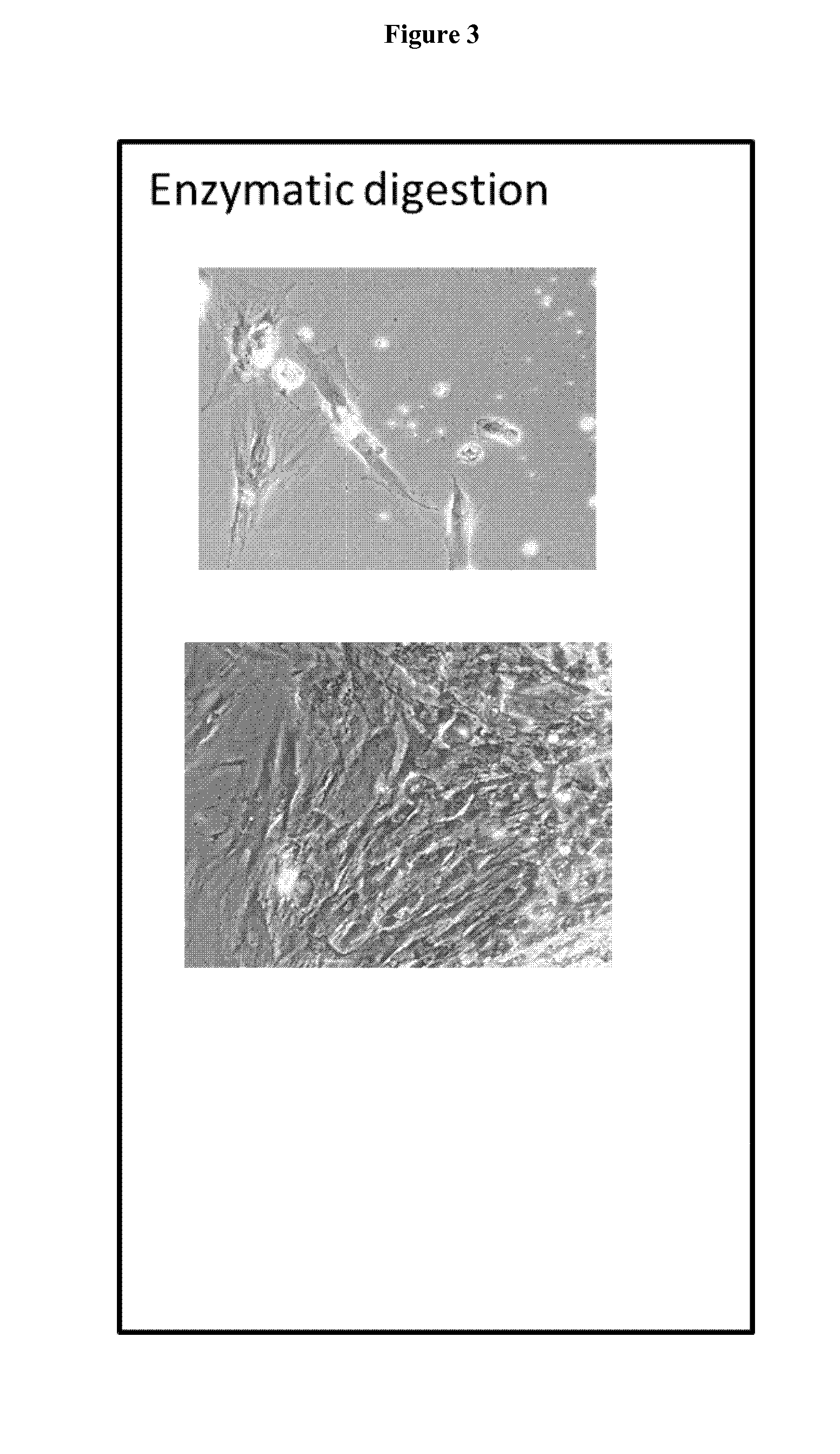Preparation of parental cell bank from foetal tissue
a cell bank and foetal technology, applied in the field of preparation of parental cell bank from foetal tissue, can solve the problems of inability to efficiently integrate cells from donors (neonatal to adult), cell type is most likely the limiting factor, and biomaterials are toxic to cells, so as to achieve stable cell banking.
- Summary
- Abstract
- Description
- Claims
- Application Information
AI Technical Summary
Benefits of technology
Problems solved by technology
Method used
Image
Examples
examples
[0095]The proximal ulnar epiphysis, the Achilles tendon and abdominal skin were processed following strict transplantation laws and by-laws and guidelines for organ donation and screening to create FEC, tendon and skin parental cell banks for tissue engineering applications (CHUV Ethics Committee protocol # 62 / 07). The tissue biopsies (cartilage,˜2 mm3, tendon, −0.2 mm3, skin, ˜2 cm2) were micro-dissected and dispersed by mechanical attachment to scalpel scored surfaces. (No enzymatic treatments were used to assure only adherent cartilage, tendon or skin outgrowth and consistency of cell population: necessary criteria for clinical usage). FEC, tendon and skin outgrowth was observed at 1-2 days to one week and expansion was accomplished at one and at two weeks. The parental cell bank was established with 50-200 vials of 5-10×106 cells and stored in the vapour-phase of liquid nitrogen. In vitro characterization of isolated cells exhibit a remarkable homogeneity in monolayer culture as...
PUM
| Property | Measurement | Unit |
|---|---|---|
| temperature | aaaaa | aaaaa |
| humidity | aaaaa | aaaaa |
| stability | aaaaa | aaaaa |
Abstract
Description
Claims
Application Information
 Login to View More
Login to View More - R&D
- Intellectual Property
- Life Sciences
- Materials
- Tech Scout
- Unparalleled Data Quality
- Higher Quality Content
- 60% Fewer Hallucinations
Browse by: Latest US Patents, China's latest patents, Technical Efficacy Thesaurus, Application Domain, Technology Topic, Popular Technical Reports.
© 2025 PatSnap. All rights reserved.Legal|Privacy policy|Modern Slavery Act Transparency Statement|Sitemap|About US| Contact US: help@patsnap.com



